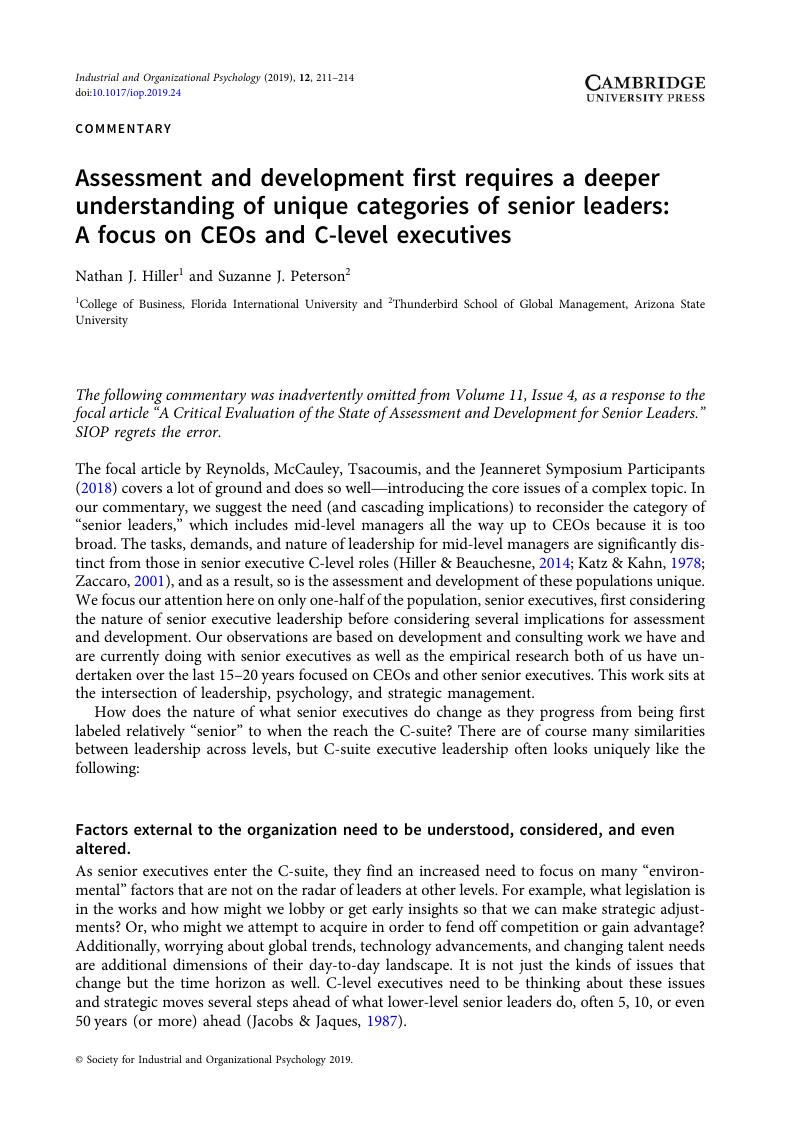Crossref Citations
This article has been cited by the following publications. This list is generated based on data provided by Crossref.
Hiller, Nathan J.
and
Peterson, Suzanne J.
2019.
Assessment and development first requires a deeper understanding of unique categories of senior leaders: A focus on CEOs and C-level executives — ERRATUM.
Industrial and Organizational Psychology,
Vol. 12,
Issue. 3,
p.
355.
Gruda, Dritjon
Ojo, Adegboyega
Psychogios, Alexandros
and
Jankowski, Jarosław
2022.
Don’t you tweet me badly: Anxiety contagion between leaders and followers in computer-mediated communication during COVID-19.
PLOS ONE,
Vol. 17,
Issue. 3,
p.
e0264444.
Psychogios, Alexandros
Gruda, Dritjon
Ojo, Adegboyega
and
Park, Chang Sup
2023.
Tweet you right back: Follower anxiety predicts leader anxiety in social media interactions during the SARS-CoV-2 pandemic.
PLOS ONE,
Vol. 18,
Issue. 2,
p.
e0279164.
Cooper, Cecily D.
and
Hiller, Nathan
2023.
Leader humor across levels.
Current Opinion in Psychology,
Vol. 53,
Issue. ,
p.
101688.


